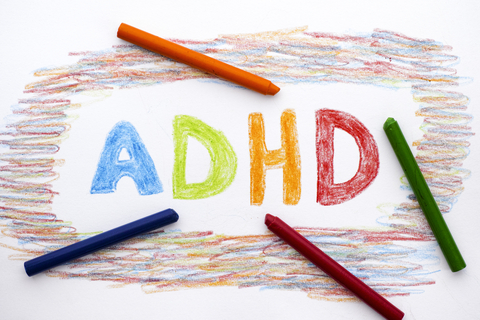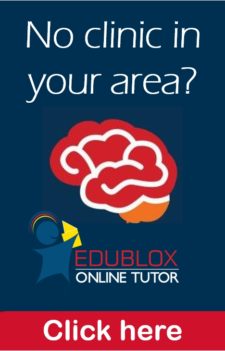
 Does your child have attention deficit hyperactivity disorder (ADHD)? Thousands of children are diagnosed every year and with this diagnosis comes a tough decision for parents to consider the right avenue of treatment.
Does your child have attention deficit hyperactivity disorder (ADHD)? Thousands of children are diagnosed every year and with this diagnosis comes a tough decision for parents to consider the right avenue of treatment.
A short attention span, periods of high activity and impulsive behaviour are the part of childhood, but for a child with ADHD, they become exaggerated and begin to interfere with daily life. Children with ADHD often struggle at school because they are unable to concentrate, solve problems and focus on prescribed tasks.
There are many different kinds of treatments for this condition e.g. medications, dietary changes, neurofeedback and cognitive training. Here’s an overview of these treatment options.
A tablet a day
For decades doctors have inevitably reached for their prescription pads to treat ADHD. Even today, drugs are still considered by many as the most effective treatment. The drugs used to control the symptoms of ADHD change the way signals are transmitted to the brain. They work by targeting the substances which help transmit these messages.
“Medication is an emotionally loaded issue for many people,” says counselling psychologist Samantha Holle. “There is no doubt that medication can be very helpful for many patients.” She explains that medication is the most researched treatment for ADHD but says that drugs alone are generally a bad treatment option. “Unfortunately, most people get medication by itself without any of the help needed for the psychological and social aspects of ADHD,” notes Samantha.
All drugs come with some risk and side-effects and with psychiatric drugs, these may be far-reaching. Doctors and parents must carefully consider these before starting any treatment. “You should educate yourself on all aspects of the drug debate before making a decision,” says Samantha. “Because ADHD in one individual affects the whole family, counselling and support groups for the family are also highly recommended.”
You are what you eat
Some clinicians believe that ADHD is linked to diet, food allergies, food additives and nutritional deficiencies. Dr Gerrie Lindeque, a family practitioner in Parys, says that there is data available which links both ADHD and autism spectrum disorders with diet and nutrients. Dr Lindeque prefers not to medicate for ADHD, but rather begins with optimising brain nutrients and eliminating potentially harmful foods from the diet. He finds that the right combination of nutrients gives a good effect but without the side effects of drugs.
Dr Lindeque says that a general guideline for most ADHD children is to avoid foods that upset blood sugar regulation. Foods high in fibre like lentils, beans and whole oats can help to regulate the blood sugar. Because a child’s brain is still developing, they need structural fats to build myelin, the white matter which surrounds the nerves. “This could be found as phospholipids in whole eggs, butter, coconut, raw nuts and cod liver oil are valuable sources of nutrients,” says Dr Lindeque. Omega-3 is another important nutrient for the brain. Sardines, mackerel and salmon provide good sources. “Don’t forget a variety of colourful organic fruits and veggies but remember to combine fruit with something that lowers the glycaemic index (GI), like nuts,” he adds.
Parents may choose to try a dietary treatment for ADHD on its own, or as a supplement treatment to medication. If you do want to consider a non-drug dietary treatment it is important to find a healthcare provider who is knowledgeable in nutrients and who is willing to try various avenues. What works for one child, may not work for another. Your GP may suggest a dietician specialising in paediatrics.
Neurofeedback therapy
According to Dr J Scholtemeyer, an educational psychologist, neurofeedback is a procedure by which brainwave activity is detected and analysed. The purpose of neurofeedback, biofeedback or neurotherapy is to train the brain to achieve a healthier brainwave profile. It can increase brainwave activity, resulting in improvement in attention and concentration.
According to this approach, persons with ADHD often have too many slow theta brain waves (associated with relaxation) and not enough fast beta wave activity (associated with mental focus). Neurofeedback therapies for ADHD generally attempt to increase the production of beta waves and decrease the number of slower brain waves.
While there is some indication on the effectiveness of biofeedback for ADHD, it is not conclusive. Several studies have yielded positive results; the best designed ones have either shown reduced effects or non-existing ones.
A recent scientific study about neurofeedback therapy was conducted in Germany (2009) with 94 children aged 8 to 12. Dr David Rabiner, a child clinical psychologist, reviewed the research and commented: “It is important to emphasise that only 50 percent of children treated with neurofeedback showed at least a 25 percent decline in core ADHD symptoms, meaning that the other 50 percent failed to show this level of clinical response.”
Another conclusion of the research is that neurofeedback may be an important component of a multimodal treatment program but its consistent use as a stand-alone treatment does not seem to be supported by the findings.
Cognitive training
Cognitive training is another avenue of non-drug treatment that parents may wish to explore. Research suggests that, with the right mental skills training, it is possible to overcome lifelong learning problems in a relatively short time.
In a nutshell, cognitive training is brain training and it’s both old and new in treating learning difficulties. “Old for South Africa but new in many other countries,” explains Susan du Plessis, director of Edublox Reading and Learning Clinic. Back in 1979, the first Edublox home program was released here and through the years, it has helped thousands of children overcome many problems, including ADHD.
Susan explains that the intention of cognitive training is to identify the underlying weakness and to teach and strengthen them. “If the brain can change, it means that the deficits in cognitive skills that ADHD children so frequently experience, like sustained attention, working memory and problem solving, can be overcome,” she says.
Cognitive training may be offered by individuals who have received the required training to offer a specific program. “Just like any fitness program consists of a variety of exercises intended to train various parts of the body, a typical lesson in cognitive training consists of a variety of exercises intended to practise various cognitive skills,” explains Susan. Areas addressed by the program may include concentration, processing speed, auditory memory, working memory and logical thinking.
A research study by Dr Lee DeLorge in Ohio tested the effect of an Edublox brain training program on 67 learners; 94 percent of the learners improved significantly. Thirty-five of the learners were diagnosed with ADHD. The processing speed of the ADHD learners showed a combined increase of 52.45 percent, from a pre-test average of 37.24 percent to a post-test average of 89.69 percent. It is well known that children with ADHD suffer from slow processing speed.
“Cognitive training programs may also be computer-based so they don’t require the specific aid of a teacher,” says Susan. “Not all of these are equally effective, so it is important for parents to do their homework before making a decision.
“It is possible to successfully use cognitive training as an exclusive treatment option.”






Leave a Reply